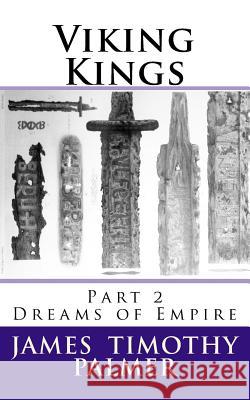Viking Kings Part 2: Dreams of Empire » książka
Viking Kings Part 2: Dreams of Empire
ISBN-13: 9781518785382 / Angielski / Miękka / 2015 / 252 str.
This is an historical novel about Scandinavian kings of England, and those who would be king, especially King Harald III of Norway, who is renowned in Scandinavia but almost unknown elsewhere. He was popularised in a saga written some 150 years after his death, by Snorri Sturluson, which is considered as history by many Scandinavians. I have based this novel on historical facts, which I have embroidered extensively. The dates are correct for the campaigns and events, and all of the major characters existed and made their contribution to history. What sparked my interest in the first place was, that if King Harald had not invaded just three weeks before William the Conqueror in 1066, the English language, would probably be totally different today. Harald decimated Earl Morcar's English northern army and inflicted a lethal blow on Harold II's army of the south. The army that faced William was a shadow of what it would have been without Harald III's untimely invasion. One of my aims is to rebalance people's view of history. For example most people even the Greeks haven't heard of the Varangian Guard, of five thousand Norsemen (and Anglo-Saxons after 1066), who formed the core of the Byzantine army for over five centuries. The Russians and Ukrainians think of themselves as Slavic and tend to ignore their Scandinavian heritage. The British also tend to forget their Scandinavian heritage. Half of England was Danish throughout the 9th, 10th and 11th centuries, and all the Scottish islands until the 15th century. English has a large number of Danish words, for example: happy, call, window. Furthermore, the beneficiary of Harald's failed invasion of England, William the Conqueror, was himself of Danish descent. Part Two of the novel continues until King Harald's death in September 1066, in the battle near Stamford Bridge, Yorkshire. During this second period of his life he became known as Harald Hardrada, which translates as Harald the Ruthless. Perhaps "The Unrelenting," would be a better epithet, as he certainly was persistent in his claim to all of Cnut's lands, including England.
Zawartość książki może nie spełniać oczekiwań – reklamacje nie obejmują treści, która mogła nie być redakcyjnie ani merytorycznie opracowana.











